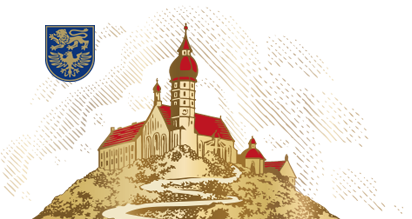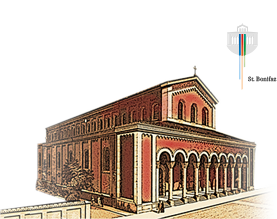Contacts
Kloster Andechs
| Address: | Bergstraße 2 |
| City: | 82346 Andechs |
| Telephone: | +49 8152 376-0 |
| Fax: | +49 8152 376 143 |
| E-mail: | to contact form |
Becoming a monk
The monk is a man of departure who follows the call of his heart. The monk is a lifelong seeker of God who believes that the fulfilment of his search lies in God.
“Hearken continually within thine heart, O son, giving attentive ear to the precepts of thy master. Understand with willing mind and effectually fulfil thy holy father’s admonition,” so says Benedict to the reader personally in the prologue of his Rule. Those to whom this speaks and who enter a Benedictine monastery grow to become part of the monastic community over several years. Seeking God in freedom, the joy of service and life in the monastic community and affirmation of the own internal path are important first steps.
Postulate
Those considering starting a life as a Benedictine monk learn about monastic life and the community in the postulate (Latin postulare, to examine) for about 6 to 12 months.
Novitiate
The postulate is followed by the one-year novitiate (Latin novus, new). It begins by being clothed in the habit and being presented with the Rule of Saint Benedict. The novice takes part in practical work and service, and is instructed in the Holy Scripture, the Rule, the bylaws of the Bavarian Benedictine congregation and the history of monasticism and the liturgy. A decision for a three-year commitment can be made at the end of the novitiate.
Vows
The time after the promise to live as a monk for three years (triennium) is intended to lead to a deeper search for God and for growing into monastic life. Education, studies and training in a corresponding occupation fall into this time. The triennium can be followed by the ceremonial vows (Latin professio, commitment), the final promise to live as a monk. With this promise, the monk becomes a full member of the monastic community.




